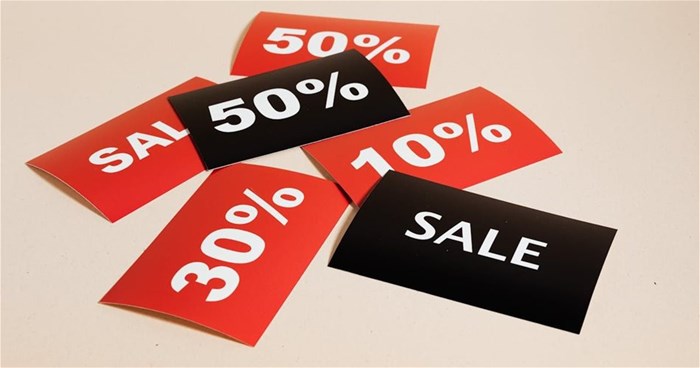While South Africans welcome the announcement by StatsSA that inflation has fallen to 3,8% - the lowest level since March 2021 - it won't necessarily result in immediate price reductions.
Consequently, consumers will continue looking for specials, loyalty programmes, and discounts to help make their money stretch further.
Jonathan Spencer, brand and campaign manager at OneDayOnly.co.za, says research shows that this is due to a myriad of factors from financial constraints, to being mindful of future price increases and the rush of endorphins when we land a great deal.
“According to a global retail study, promotions can save shoppers up to 30%. It’s therefore no surprise that 60% of cash-strapped consumers are actively looking for coupons, discounts, and deals to offset persistently high prices,” says Spencer.
A report from McKinsey & Company titled Consumers: Spending more to buy less supports this finding, showing that many consumers delay purchases until items go on sale as part of their cost-saving strategies.
Spencer says that this behaviour is especially pronounced in categories such as groceries, personal care products, and household goods, with 50%, 41%, and 43% of shoppers, respectively, holding out for discounts before making a purchase.
“Interestingly, younger generations are leading this trend, with 66% of Gen Zs and 67% of Millennials waiting for sales, compared to just 44% of Gen Xs.”
In addition to postponing purchases, there is also the growing trend of impulse buying in response to limited time offers.
“Consumers are increasingly sensitive to the possibility of future price increases, which can drive them to make snap purchases when they spot a short-lived promotion,” shares Spencer.
The Ecommerce Discounting & Promotions Report by research firm 2 Visions, found that shoppers are 178% more likely to make a purchase if the product is both discounted and available for a limited time.
Beyond the economic necessity of saving, he highlights a powerful psychological motivator behind the hunt for discounts: The feelgood factor.
“It’s not just about the money - 38% of people say they experience genuine excitement when they land a deal, 63% feel like a savvier shopper and 40% report that using discounts makes them more satisfied with their purchases.”
“Another factor contributing to the appeal of discounts is the growing impact of influencers,” notes Spencer.
“With social media playing an ever-expanding role in shopping habits, influencers are increasingly guiding consumers towards discounts and deals.”
He explains that people naturally seek validation from their social groups.
“Influencers, with their authority and popularity, tap into this by showcasing discounted products that their followers’ are likely to embrace. Influencers also leverage the principle of reciprocity by offering rewards, discounts, or free samples, which prompts followers to return the favour by making purchases or engaging with content. Additionally, influencers amplify their persuasive power by leveraging social proof – demonstrating that others within the followers' reference group have already taken advantage of the discount, which motivates individuals to conform and make the same purchase.”
“In an economic landscape still impacted by inflation, discount hunting will remain a key practice among consumers. Whether driven by necessity or the thrill of the hunt, South Africans will continue to seek out deals as they navigate these financial times,” concludes Spencer.

































